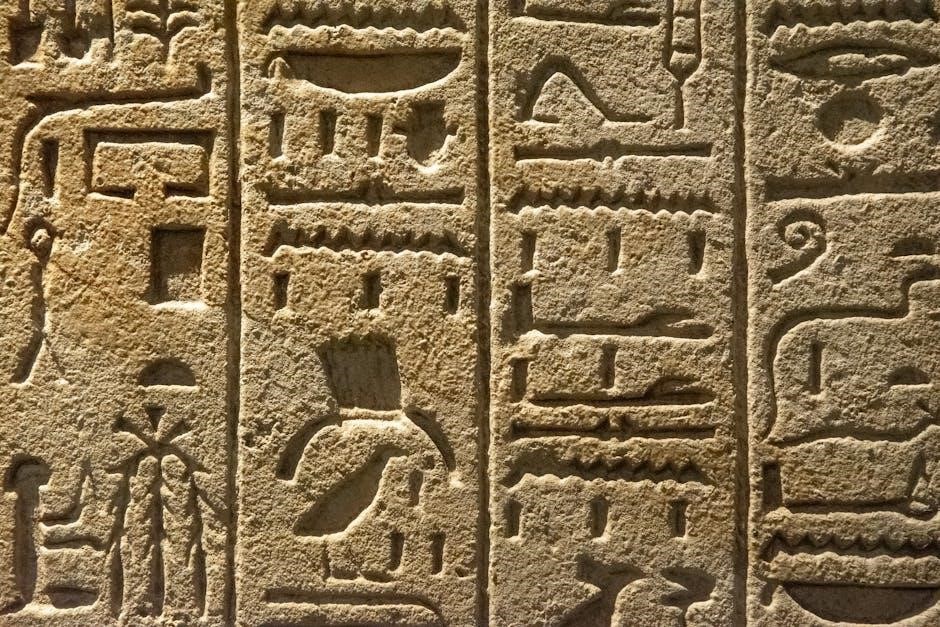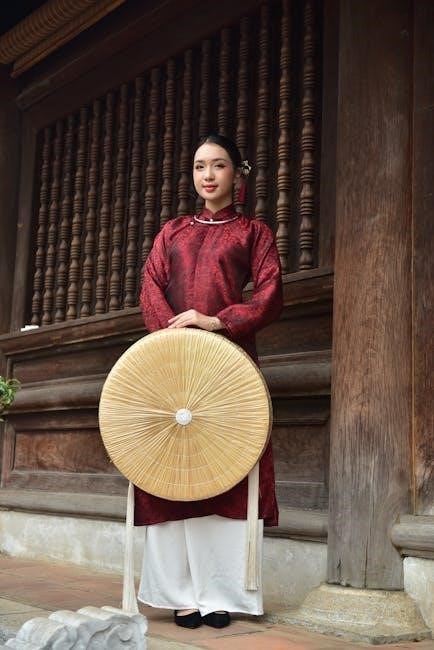Donna Tartt’s debut novel, The Secret History, is a modern classic exploring dark academia, elite intellectualism, and moral ambiguity. Its haunting narrative has captivated readers worldwide, making it a cornerstone of contemporary literature.
Overview of Donna Tartt’s Debut Novel
The Secret History, Donna Tartt’s debut novel, published in 1992, is a psychological thriller that explores the dark underbelly of intellectualism and morality. The story follows a group of elite classics students at an New England college who commit a murder, unraveling their lives and exposing the fragility of their ideals. This gripping tale of obsession, guilt, and the dangers of isolation has become a cult classic, cementing its place in modern literary history.
The Cultural Impact of “The Secret History”
The Secret History has left an indelible mark on modern literature, popularizing the dark academia genre and influencing countless works. Its exploration of morality, guilt, and elite intellectualism resonates deeply, sparking debates and inspiring adaptations. The novel’s haunting prose and complex characters have solidified its status as a cultural phenomenon, making it a staple in book clubs and academic discussions while continuing to captivate new generations of readers worldwide.

Plot Summary
The Secret History follows Richard Papen, a young man who joins an elite group of classics students at a New England college. Their intellectual pursuits and dark obsessions lead to a tragic murder, unraveling the lives of all involved and exploring themes of guilt, morality, and the consequences of their actions.
The Story of Richard Papen and His Friends
Richard Papen, a scholarship student from California, joins an exclusive group of classics students at Hampden College in New England. The group, which includes the enigmatic Charles, Camilla, Francis, and Bunny, is led by the charismatic Professor Julian Morrow. Richard’s desire to escape his mundane life leads him into a world of intellectual elitism and moral ambiguity. Their bond, initially forged through shared academic passions, spirals into a dark obsession with ancient Greek ideals, culminating in a tragic event that irrevocably changes their lives. The novel masterfully explores themes of identity, class, and the dangers of unchecked intellectualism, creating a gripping narrative that delves into the complexities of human nature and the consequences of their actions.
The Tragic Events and Their Consequences
The novel’s central tragedy unfolds with Bunny Corcoran’s murder, a downward spiral from the group’s escalating tensions and moral decay. Richard, Charles, Camilla, Francis, and Bunny’s dynamics deteriorate as their actions lead to irreversible consequences. The aftermath reveals the psychological unraveling of each character, exposing their guilt, paranoia, and fractured relationships. The events underscore the devastating impact of their choices, reshaping their lives forever and leaving behind a trail of remorse and shattered illusions.

Themes in “The Secret History”
Exploring dark academia, elitism, and moral decay, the novel delves into the dangers of intellectual arrogance and the blurred lines between good and evil, hauntingly portrayed through its characters.
Dark Academia and Elite Intellectualism
The Secret History masterfully explores the allure and dangers of dark academia, delving into a clique of privileged, intellectually obsessed students. Their pursuit of classical knowledge isolates them from mainstream culture, fostering an atmosphere of exclusivity and moral decay. Tartt vividly portrays how their elite intellectualism morphs into arrogance, blurring the lines between enlightenment and madness, and ultimately leading to tragic consequences that expose the darker side of ambition and isolation.
Morality, Guilt, and the Nature of Evil
The Secret History delves into the complexities of morality, guilt, and evil through the actions of its characters. The novel explores how intellectual arrogance and a distorted sense of superiority lead to moral decay. After committing a murder, the group grapples with guilt, paranoia, and psychological unraveling, revealing the darkness beneath their polished facades. Tartt examines the fine line between innocence and depravity, questioning whether evil is inherent or born from circumstance, leaving readers to ponder the true cost of their choices.
Character Analysis
The Secret History delves into the psychological depths of its characters, particularly Richard Papen and Bunny Corcoran, exploring their complexities, motivations, and the dynamics of their elite, insular group.
Richard Papen: The Outsider’s Journey
Richard Papen, a young man from a humble background, transforms from an outsider to a member of an elite group of students. His journey reflects his desire to escape his ordinary life and embrace a world of intellectual and moral extremes. Through his experiences, Tartt explores themes of identity, class, and the dangers of aspiration, revealing Richard’s struggle to reconcile his past with his new, darker reality.

Bunny Corcoran: The Tragic Figure
Bunny Corcoran, a member of Richard’s elite group of classics students, becomes a central figure in the novel’s tragic unfolding. His peculiar nature and eventual fate serve as a catalyst for the group’s descent into darkness. Bunny’s character represents the fragility of human morality and the devastating consequences of their actions, making him a poignant symbol of the novel’s exploration of guilt and the destructive power of elitism and isolation.

Donna Tartt’s Writing Style
Donna Tartt’s writing in The Secret History is known for its lyricism, atmospheric detail, and classical influences, creating a haunting, immersive prose that explores morality and guilt deeply.
Lyricism and Atmospheric Detail
Donna Tartt’s writing in The Secret History is renowned for its lyrical prose and vivid atmospheric detail. Her dense, evocative language immerses readers in the world of elite academia, creating a hauntingly beautiful backdrop for the story’s dark events. The novel’s atmospheric richness, from the gloomy New England landscapes to the claustrophobic intensity of the group’s dynamics, underscores the moral and psychological complexity of the narrative, drawing readers into its chilling and unforgettable realm.

The Influence of Classical Literature
Classical literature deeply influences The Secret History, as Donna Tartt weaves themes from Greek and Roman mythology into the narrative. The novel’s focus on classical studies and its exploration of human morality evoke the timeless philosophical debates found in ancient texts. Tartt’s use of classical allusions not only enriches the story but also underscores the universality of human flaws and the enduring relevance of classical ideals in modern academia.
Availability of “The Secret History” in PDF
The Secret History by Donna Tartt is widely available in PDF format through authorized platforms like libraries and online retailers. Unauthorized sources may also exist.
Legal and Unauthorized Sources
The Secret History in PDF can be accessed legally through libraries and authorized platforms like SparkNotes, ensuring copyright compliance and quality. Unauthorized sources, such as pirated websites, offer free access but violate copyright laws and pose security risks. Readers are encouraged to support authors by using legal options, which often include free or low-cost access through public libraries or educational platforms.
Free Access Through Libraries and Online Platforms
Readers can access The Secret History PDF legally and for free through public libraries and online platforms. Services like OverDrive and Scribd offer borrowing options, while platforms like Project Gutenberg and many libraries provide free e-books. Additionally, educational resources such as SparkNotes and Book Club guides are available online, enhancing readers’ understanding of the novel without requiring purchases, making Donna Tartt’s work accessible to all interested readers globally.

Critical Reception and Reviews
The Secret History received widespread acclaim for its lyrical prose and psychological depth. Critics hailed it as a modern classic, praising its exploration of morality and darkness, solidifying its place in contemporary literature.
Initial Response and Long-Term Legacy
Donna Tartt’s The Secret History debuted in 1992 to critical acclaim and commercial success, hailed as a modern classic. Its dark academia theme and psychological depth resonated widely, establishing it as a cultural phenomenon. Over time, the novel’s influence has endured, inspiring countless adaptations and discussions. Its exploration of morality and elite intellectualism continues to captivate readers, cementing its legacy as a defining work of contemporary literature.
Comparisons to Other Literary Works
The Secret History is often likened to works by Bret Easton Ellis and Fyodor Dostoevsky, blending psychological thriller elements with philosophical introspection. Its dark academia theme parallels If We Were Villains and

Similar Books and Recommendations
- If We Were Villains by M.L. Rio: A dark academia thriller exploring guilt and friendship.
- The Little Friend by Donna Tartt: Another gripping tale of mystery and obsession.
- The Goldfinch by Donna Tartt: A haunting story of trauma and redemption.
Dark Academia and Psychological Thrillers
Fans of The Secret History often gravitate toward dark academia and psychological thrillers. Books like If We Were Villains by M.L. Rio and The Little Friend by Donna Tartt explore similar themes of guilt, obsession, and elite environments. These stories captivate readers with their intense atmospheres and moral complexity, delving into the darker side of intellectual pursuits and the consequences of unchecked ambition. They offer gripping narratives that resonate deeply with lovers of the genre.
Books by Donna Tartt and Other Authors
Beyond The Secret History, Donna Tartt has authored The Little Friend and The Goldfinch, both critically acclaimed for their psychological depth. Fans of her work often explore similar themes in novels by authors like M.L. Rio (If We Were Villains) and Megan Abbott (Give Me Your Hand). These books delve into dark academia, moral complexity, and haunting narratives, offering readers a rich literary experience. They also highlight the allure of elite environments and the consequences of ambition, resonating deeply with enthusiasts of Tartt’s style.
Cultural and Literary Significance
The Secret History is a modern literary phenomenon, blending psychological depth with dark academia. Its exploration of morality and elite culture has cemented its status as a timeless classic, influencing both literature and popular culture significantly.
The Novel’s Place in Modern Literature
The Secret History holds a revered position in modern literature, celebrated for its dark academia themes and psychological depth. Its intricate exploration of human nature, guilt, and elite culture resonates deeply. Often compared to classical works, it bridges the gap between ancient ideals and contemporary storytelling. The novel’s influence is evident in its enduring popularity and its role in shaping the dark academia genre, making it a benchmark for literary excellence and moral complexity.
Influence on Popular Culture
The Secret History has profoundly influenced popular culture, inspiring countless adaptations, films, and TV shows. Its dark academia theme has sparked a genre, shaping modern storytelling. The novel’s eerie atmosphere and complex characters have also influenced music and fashion, cementing its impact beyond literature. Its exploration of morality and elite culture continues to resonate, making it a cultural touchstone for contemporary media and aesthetic trends.
Reading Guides and Study Materials
SparkNotes and online platforms offer comprehensive guides for The Secret History, providing summaries, analysis, and quotes to aid readers in understanding the novel’s complex themes and characters.
SparkNotes and Other Study Resources

SparkNotes provides an exceptional study guide for The Secret History, offering detailed summaries, character analysis, and thematic insights. Additional resources include online platforms with chapter breakdowns, quotes, and critical essays, helping readers delve into the novel’s complexities. These materials are invaluable for students and book clubs, enhancing understanding of Donna Tartt’s intricate narrative and its profound exploration of morality and human nature.
Book Club Discussions and Analysis
The Secret History is a favorite among book clubs, sparking debates on morality, guilt, and the dangers of elite intellectualism. Its complex characters and atmospheric prose invite deep analysis, with discussions often focusing on Richard’s transformation and Bunny’s tragic fate. The novel’s exploration of human darkness and societal pressures makes it a compelling choice for thoughtful dialogue. Free PDF access through libraries and online platforms ensures widespread availability for book clubs worldwide.
